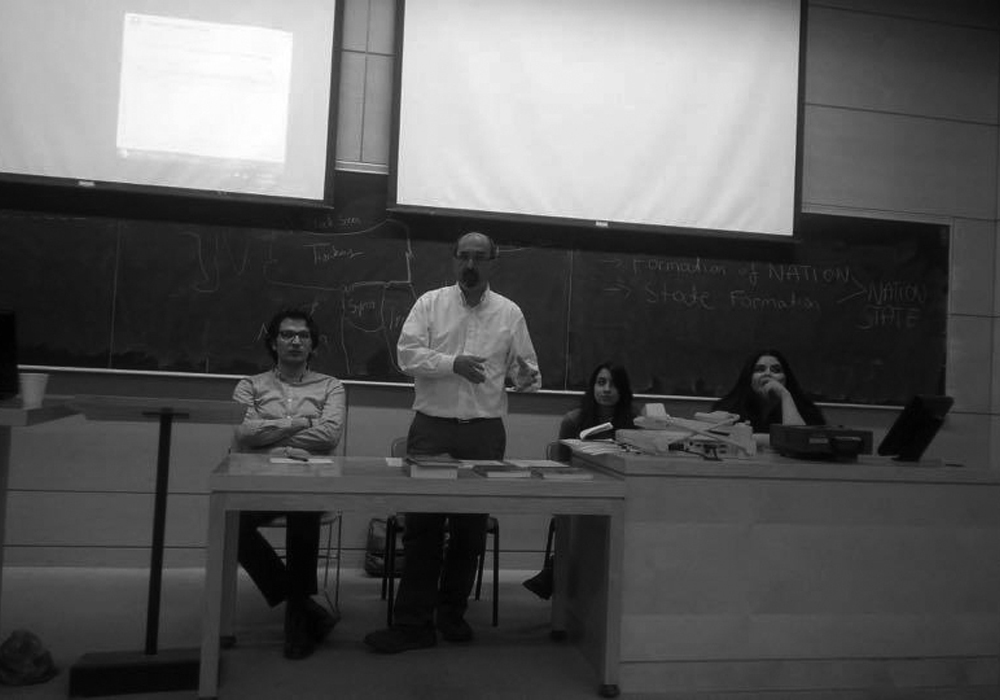Kanchi Uttamchandani, Contributor
Featured image courtesy of KSA
A highly stimulating contemporary Kurdish issues panel was organized by the politically engaged Kurdish Students’ Association, featuring four prominent minds in Kurdish politics.
The panelists addressed pressing issues facing Kurdistan today and how it relates to their Canadian identity.
Alan Joseph, KSA president, says people are largely unaware of Kurdistan, which he says is not a country, but a geopolitical hotspot nestled between Iraq, Syria, Turkey, and Iran.
“As a Kurd student, I want to spread awareness and the KSA is a platform to get our word out. We are a 20 million strong population which makes us the largest ethnic minority living in a volatile part of the world (the Middle East) who have been oppressed for centuries. The motive behind organizing this panel is to make the York community aware, which in turn can fuel activism.”
Renowned sociologist Hadi Elis took the podium and condemned Turkish state fascism and called for its membership suspension from the North Atlantic Treaty Organization.
“Turkey is cut off from the rest of the Sunni Arab world and employs police and army force as physical violence tactics to break the Kurdish resistance,” he says.
“Globalization of radical Islam is happening through Turkey which provides intelligence and training to ISIS, a Sunni Arab organization that has primarily targeted Kurdistan, but not Jordan or Saudi Arabia.”
Arien Tahir, president of KSA at the University of Western Ontario, presented on Yazidi persecution, citing the Sinjar massacre referring to the forced captivity of Yazidi women as a prime example.
“Psychological trauma experienced by Yazidi women can be traced back to strategic use of rape as a tool of genocide,” says Tahir. “Yazidis today cannot go home as their homeland is under siege, they have limited access to medical care, and educational opportunities are rare.”
“There is a culture of abject poverty wherein displaced families are living off of donations. This is an ongoing situation where 3,000 Yazidis are missing. The future of the Yazidi community lies in establishing mental health centres and providing security forces so they can go back home.”
Ashna Ali, a Kurdish-Canadian student at Western spoke about her Kurdish identity in Canada, emphasizing that religion does not play an important part of the Kurdish identity, as Kurds are Indo-European.
She also stresses the Kurdish struggle cannot be compared to the Palestinian struggle, as the latter case has only one opponent whereas the former case has multiple opponents.
The panel concluded with a Q&A session which witnessed a heated debate about the Kurdish identity being inseparable from politics, insinuating that the Kurdish identity is inherently politicized given the divisive factions existent within Kurdistan.
Follow us on instagram, @excalphotos

